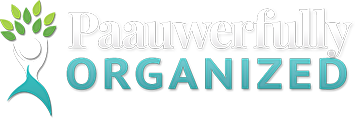You may be among the many who ask the question: Is work-life balance a myth? Is it possible to create a balance between the two?
The month of May is Revise Your Work Schedule Month – an ideal time to sit with this question and evaluate how you manage your work and personal life, including time for self-care.
Although there’s been quite a buzz about work-life balance since the late 1980s, I honestly don’t know anyone who has actually achieved it. This leaves most of us thinking that we’ve failed at creating such a balance, even though we think others have achieved it.
The term “work-life balance” has remained popular. This is largely due to the increase of millennials in our workforce. Each generation has adopted different views on work-life balance. Here’s a generational overview:
Baby Boomers (born between 1945-1960) were exposed to a lot of hardships at a very young age. Making a decent living was a challenge, and this generation craved stability in the workplace and valued the opportunity for employment. Because of this, work-life balance wasn’t a main concern. Keeping a steady job was the priority.
Gen X (born to baby boomers between 1961-1980) grew up witnessing the long hours and poor work-life balance of their parents. Many Gen Xers were exposed to the effect such a relationship with work had on the family unit. As a result, this generation put more emphasis on creating work-life balance in their own lives.
Millennials (born between 1981-2000) value lifestyle over work. Their focus is to find a career that will support their lifestyle. That being said, this generation was born into the biggest student loan burden in our history. Finding stable employment — to pay for higher education and soaring housing costs — remains amongst the highest of priorities for this generation.
Finding Your Center
What if each of us were to focus on finding our own center, rather than chasing that elusive “life-balance” idea that really doesn’t exist?
Life is messy. Life is variable and unpredictable. It’s nearly impossible to strike a perfect balance between your work and personal life every day. For example, you may have a child or elder who needs help getting to a doctor’s appointment in the middle of your workday. Or you may have an important evening event at work that cuts into family time. Important personal and work-related activities don’t necessarily fit into a set schedule.
You’ll be much happier when you learn to flex and adjust your schedule to leave work early for a family commitment or to be away from family activities for a work commitment. Chastising yourself for making such accommodations in your schedule is not beneficial, as the negative self-talk simply weakens you and wears you down.
 The key is to find your center by honoring your core values as you manage your day-to-day life. What I value most includes my health, my faith, quality in my work and family responsibilities, contribution (volunteer and financial), and enjoying quality time with close family and friends.
The key is to find your center by honoring your core values as you manage your day-to-day life. What I value most includes my health, my faith, quality in my work and family responsibilities, contribution (volunteer and financial), and enjoying quality time with close family and friends.
Think of a boat that has dropped its anchor. No matter what waves or wind pass by, the anchor holds the boat in place. Although you cannot perfectly balance your life – the waves and wind may frequently throw you off balance — you can make values-based decisions that honor your priorities, which will serve as a solid anchor in your life. Honoring your values and priorities will enable you enjoy a sense of peace and purpose — even amidst a storm — rather than feeling like your boat is lost at sea.
Show Up 100% Wherever You Are
You’ve had one of “those” days at work and you find yourself thinking, “I can’t wait to get home to my friends/partner/family so I can be with the people I feel most nurtured by.” After all, you really value time with those you cherish.
 But what do you actually do when you get home? Are you fully present with those you care about? Statistics show that many adults spend much of their time on one or more of their digital devices.
But what do you actually do when you get home? Are you fully present with those you care about? Statistics show that many adults spend much of their time on one or more of their digital devices.
Here are the facts:
- According to a 2017 U.K. study, 34% of people have checked Facebook in the last 10 minutes.
- According to a Harris poll, 6 out of 10 people in the U.S. wish that their family members would unplug more often.
- According to an IDC report, 80% of smartphone users say that checking their phone is the first thing they do in the morning, and 79% of people age 18-44 have their smartphones with them 22 hours a day.
When your values and your actions are not in alignment with each other, your sense of peace and purpose is challenged.
How healthy is your smartphone behavior?
Jessica Wong, a state-certified prevention professional at the Hazelden Betty Ford Foundation in St. Paul, Minnesota, says that people can be addicted to technology the same way they are addicted to online porn and video games.
 “It impacts the same area of the brain as drugs and alcohol. Still, it takes a lot for technology use to meet the definition of dependence. We call it addiction when it starts to impact day-to-day function, relationships with children, spouses and friends.” – Jessica Wong
“It impacts the same area of the brain as drugs and alcohol. Still, it takes a lot for technology use to meet the definition of dependence. We call it addiction when it starts to impact day-to-day function, relationships with children, spouses and friends.” – Jessica Wong
The signs of digital addiction mimic the signs you see in someone who’s an alcoholic or a drug addict.
If you answer YES to one or more of these questions, you may benefit from seeking help for a smartphone addiction:
 Do you hide online shopping or social media use from your significant other?
Do you hide online shopping or social media use from your significant other?- Do you find yourself needing to immediately respond to any text alert you receive?
- Do you check your cell phone first thing every morning? If you wake up during the night, do you check it then?
- Is your screen time more important to you than your face-to-face time with your real-life relationships?
- Do you feel angst if you leave your phone at home or out of sight when at social engagements or while eating a meal with others?
One in eight adults and children have a cell phone addiction. If you think that your smartphone time is affecting your work, health, and relationships, it may be time to ask for help.
If you’d like a fresh perspective– someone to help you design the life you want by aligning your values, choices and actions—let’s schedule a no-cost, no-pressure Discovery Call today.
Additional Resources:
- Blog: A Relationship-Builder or Destroyer
- Blog: The Superman Syndrome
- Blog: Power in Your Purpose
- Blog: White Space: Why it Matters in Your Life
- Free eBook: 7 Strategies to Overcome Overwhelm
- Guide: Cultivating Happiness: Living Life on Your Terms
- Guide: Find Your Strengths & Choose Your Success
- Guide: Creating New Habits
- Guide: Living with Purpose
- Guide: Banish Stress from Your Life: Your Guide to Living More Peacefully

Life Architect – Creating Blueprints for Purposeful & Productive Lives
Kathy@OrgCoach.net www.OrgCoach.net Follow me on Facebook






After many stressful work years, and then the addition of insomnia from menopause, I decided it was time to create better balance in my personal and work life. I started by switching jobs with my senior staff member. She became the manager and I the scientific writer. Then a year or two later, I was able to negotiate going to 30 hr/wk from 40 hr. Am loving this decisions with more time but still enough work structure to feed my need to contribute.
Ellen, congratulations on asking for what you want and making it happen. It sounds like you have a great mix of career and time for the many other interests you have. Good for you!